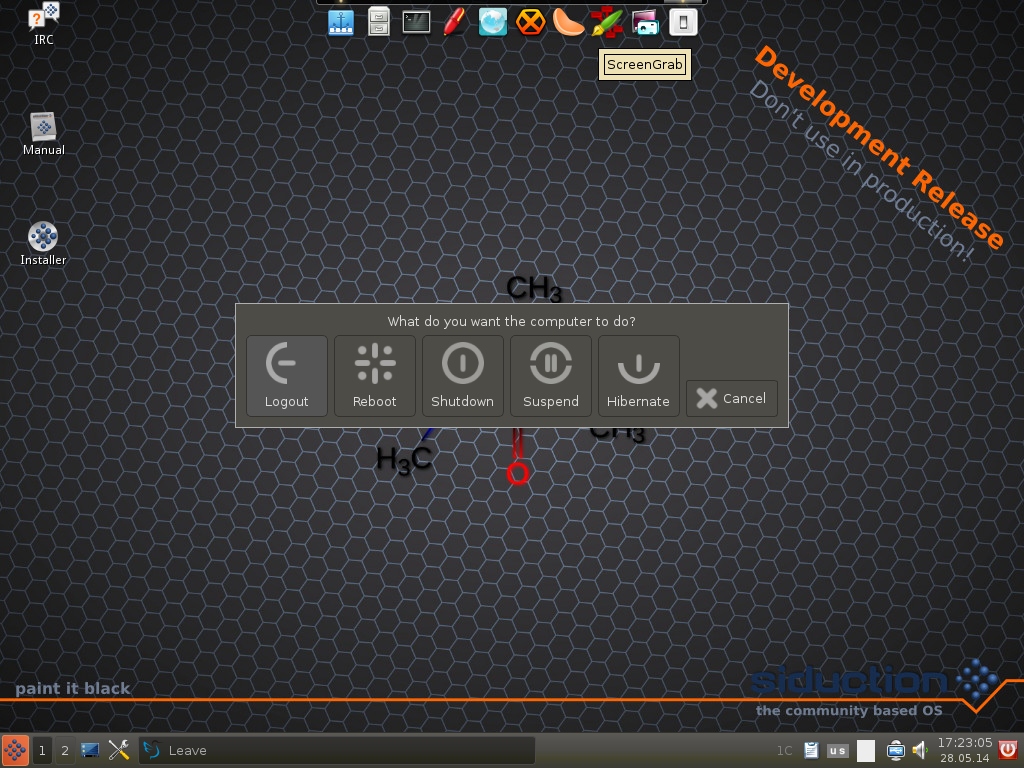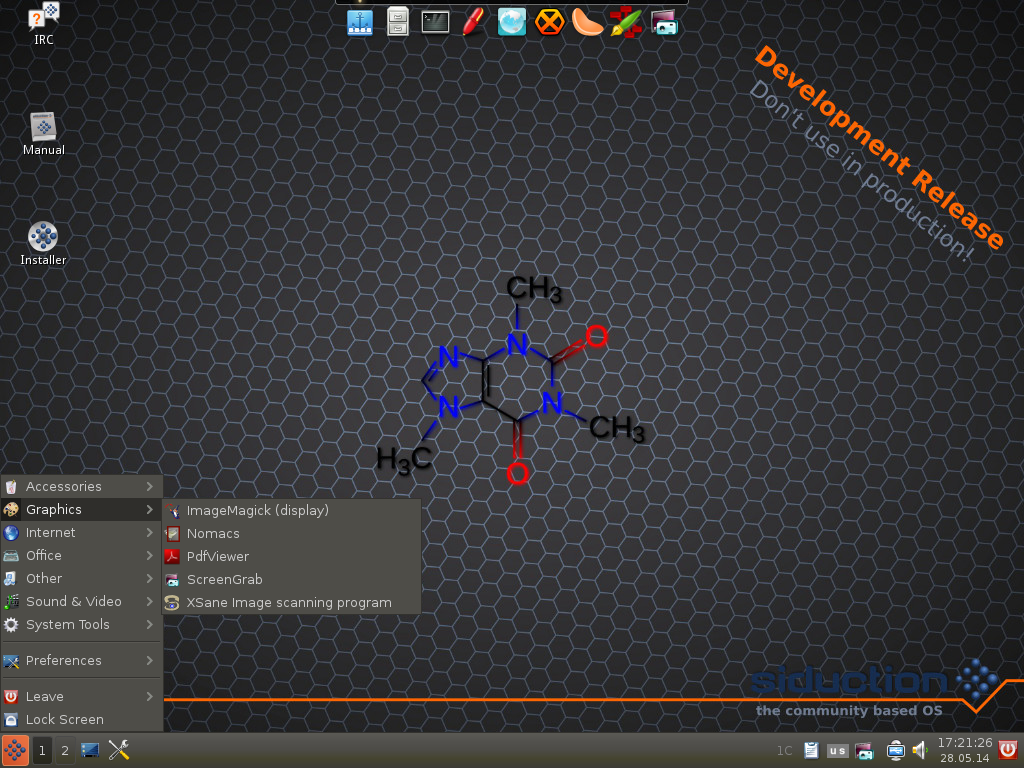This year's LinuxTag conference saw the release of siduction-14.1.0-lxqt images (64-bit only), code named 'paintitblack' if that's of any interest. The LXQt spin is currently the only one available, download it here directly (793 MB). Unfortunately their home page has recently fallen victim to the trend of having the forum replace a proper main page, but paintitblack is a great way of trying out this offering from the LXQt guys in a live session. If you don't know anything about Siduction reading the top of the manual page might serve as an introduction to the project. Best of all, as it's a continuation of previous work done in those other two projects, LXQt is now in version 0.7 and supposed to be usable in production environments.
Here are some screenshots:
You get a couple of applications but as this is a live CD for showing off the LXQt desktop the choice is of limited value and ultimately not important. However, we get the Plank desktop bar on top of the screen with links to PCManFM file manager and a virtual terminal, the medit text editor, HexChat, the Clementine audio player, Zimbra Wiki and a screengrabber. This bodes well for any upcoming non-dev version, except Qupzilla as a browser which choked on a number of web sites. Chromium or Iron would be a better choice here, or perhaps one of the many stripped Firefox builds like Abrowser, Burning Dog or Pale Moon. Or why not Iceweasel. We also get links to IRC, the manual and the installer, which opens in a browser, on the desktop.
The control center supports most of the usual choices in a form we have come to expect, like adjusting screen resolution and the like, and the Openbox window manager settings are integrated into the panel. Apparently Razor-qt did Xinerama well and it can be hoped this has carried over. Settings can be started from the bottom panel which also houses few widgets to the right not dissimilar to KDE 4, like the removable devices manager.
Some applications in the Graphics subsection. Menus have a slightly outdated slide-out effect, very much like the one known from Win98. This manages to look a little stylish and retro at the same time but can be disabled in the effects settings.
Preferences and ...
Settings menu.
 |
| Good-bye. |
Fortunately it was possible to install and use additional software in the live session and Chromium made uploading these shots a lot more bearable.
Overall it feels like a stripped down KDE desktop, or as I like to say, KDE 4 light done right. You get an elegant, modern look that LXDE has not been able to achieve while it was stuck on Gtk2 and it looks like their long announced intent to move to the Qt toolkit has paid off.
If you are using Slackware, Razor-qt was in Slackbuilds for 14.1 and I would expect LXQt to show up for the next Slackware release. Until then, we can always compile like true slackers. For Arch it's already in the repos and packages are available for several other distributions as listed on lxqt.org.






I understand the LXQt project's goal is to be a QT environment, replaceing GTK applications with QT ones. Chromium, Firefox, Iron, Pale Moon, abrowser, SRWare Iron, Uzbl, Xombrero... all depend on GTK. On the QT side, Rekonq and Konqueror both pull in a lot of KDE dependancies, and Arora's development ceased in 2012. There are slimmer browsers (i.e. surf from suckless) but they would likely be much too feature-lean for the project's target audience. QupZilla meets the goal of being QT, is actively developed, and it strikes a fair balance of lightness (LX's driving theme) with a feature set most users expect.
ReplyDeleteQupZilla uses the widely adopted webkit backend so it is suprising that you experienced issues, although it could be issues introduced somewhere midstream or perhaps the integrated AdBlock was being a bit too agressive.
Ah! I ran into similar issues using Google services and some other sites as well when I caught the uzbl-browser bug. Google Drive and Docs were the most troublesome for me. The issue in my case was that Google checks user agent and doesn't behave as expected with non-mainstream browsers, even when the browser is fully capable. Changing the user agent string by browser reported to Google fixed it for me. QupZilla 1.1.8 added user agent settings in the preferences.
DeleteHi, Just a comment about Chrome and GTK. Chrome Stable now uses Aura and so if that's the only non-QT program one wants to install there's no fear of pulling in GTK stuff (I think). And Seth, thanks for the UA string tip. I will try Qupzilla one of these days.
ReplyDelete